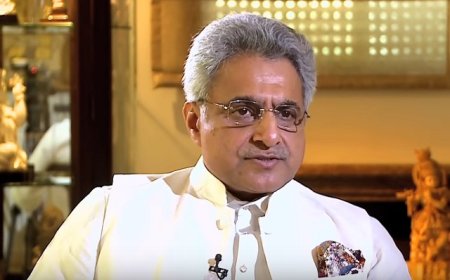Joe Biden: The 46th President of the United States
Joseph Robinette Biden Jr., better known as Joe Biden, serves as the 46th President of the United States. His long-standing political career, moderate Democratic views, and emphasis on unity and restoration of America’s global image have made him a pivotal figure in contemporary U.S. history. From serving as Vice President under Barack Obama to winning the presidency in one of the most polarizing elections in recent memory, Joe Biden's journey is both historically rich and politically complex.
This article explores Biden’s early life, political career, presidential policies, global impact, and what the future may hold as the United States heads into another election cycle.
Early Life and Political Beginnings
From Scranton to Washington
Joe Biden was born on November 20, 1942, in Scranton, Pennsylvania, into a working-class Irish-Catholic family. His family later moved to Delaware, where Biden would spend most of his formative years. He graduated from the University of Delaware and earned his law degree from Syracuse University.
Biden entered politics at a young age. At just 29 years old, he became one of the youngest individuals ever elected to the U.S. Senate in 1972, representing Delaware. His early years in politics were marked by personal tragedy: shortly after his election, his wife and infant daughter were killed in a car accident. He took the oath of office at his son’s hospital bedside, a moment that shaped his public image as a resilient, empathetic leader.
Political Career and Key Positions
Biden’s political career spans over five decades, making him one of the most experienced political figures in American history.
Joe Biden’s Political Milestones
| Year | Position/Role | Remarks |
|---|---|---|
| 1972 | Elected as U.S. Senator from Delaware | Youngest Senator at the time |
| 1987 & 2008 | Ran for Democratic Presidential Nomination | Unsuccessful bids |
| 2009–2017 | Vice President under Barack Obama | Helped pass Affordable Care Act, led foreign missions |
| 2020 | Elected as 46th President of the United States | Defeated Donald Trump in a record voter turnout |
Presidency: Policies and Achievements
Domestic Agenda
Upon taking office in January 2021, Joe Biden laid out an ambitious agenda focused on COVID-19 recovery, economic stimulus, infrastructure, and climate change.
Key Domestic Policies of the Biden Administration
-
American Rescue Plan: A $1.9 trillion COVID-19 relief package passed in March 2021.
-
Infrastructure Investment and Jobs Act: A $1.2 trillion plan to improve roads, bridges, public transit, and broadband.
-
Inflation Reduction Act: Targets climate change mitigation and reduces healthcare costs.
-
Student Loan Relief: Efforts (some challenged in court) to cancel student loan debt.
-
Gun Control Initiatives: Executive actions on background checks and red flag laws.
Biden’s administration has focused heavily on restoring the economy, reducing inflation, and protecting democracy, often emphasizing bipartisanship.
Foreign Policy and Global Leadership
Biden has worked to restore America’s alliances, especially with NATO, and counter global authoritarianism.
Key Foreign Policy Actions
| Region/Country | Action Taken |
|---|---|
| Ukraine | Military and humanitarian aid amid Russia's invasion |
| China | Strategic competition, focus on trade and security |
| Afghanistan | Completed troop withdrawal in August 2021 |
| Middle East | Renewed nuclear talks with Iran, supported Israel |
| Climate Policy | Rejoined the Paris Agreement on Day 1 of presidency |
Joe Biden’s Leadership Style
Joe Biden is often described as empathetic, moderate, and pragmatic. His leadership style contrasts with more populist or radical elements in both political parties.
Hallmarks of Biden's Leadership
-
Empathy: Personal losses have made him a relatable figure to many.
-
Experience: Over 50 years in politics bring institutional knowledge.
-
Moderation: A centrist in an increasingly polarized environment.
-
Coalition Building: Promotes bipartisanship and compromise.
-
Communication: Speaks directly to the public, often emphasizing unity.
Challenges and Criticisms
Despite notable achievements, Biden’s presidency hasn’t been without controversy or criticism.
Common Criticisms
-
Handling of the Afghanistan Withdrawal: Widely seen as chaotic and poorly planned.
-
Inflation and Economy: Critics blame stimulus packages for rising inflation.
-
Immigration Policy: Surge at the southern border has sparked debate.
-
Age and Cognition Concerns: At 81 years old, Biden is the oldest sitting U.S. president.
Table: Approval Ratings Snapshot
| Year | Average Approval Rating | Major Issue Influencing Ratings |
|---|---|---|
| 2021 | 53% | COVID response, stimulus checks |
| 2022 | 42% | Inflation, Ukraine crisis |
| 2023 | 45% | Debt ceiling debate, student loan rulings |
| 2024 | 47% | Economic recovery, re-election campaign begins |
Looking Ahead: Biden and the 2024 Election
Biden has announced his candidacy for re-election in 2024, with Vice President Kamala Harris as his running mate. His campaign is built around:
-
Defending democracy
-
Strengthening the middle class
-
Continuing climate action
-
Reproductive rights and social equity
Polls suggest a close race, particularly if Donald Trump is the Republican nominee again. Biden will likely emphasize his record of stability, economic recovery, and international leadership in contrast to his predecessor.
Conclusion: Joe Biden’s Legacy in the Making
Joe Biden’s presidency is a defining chapter in American history. Taking office at a time of immense turmoil — from a global pandemic to rising political extremism — he has aimed to restore decency, diplomacy, and data-driven governance to the White House. While his term has had its share of missteps and contentious decisions, Biden remains a figure of resilience, perseverance, and steady leadership.
As the world watches the 2024 election unfold, one thing is clear: Joe Biden’s impact on the fabric of American democracy will be felt for decades to come.






























